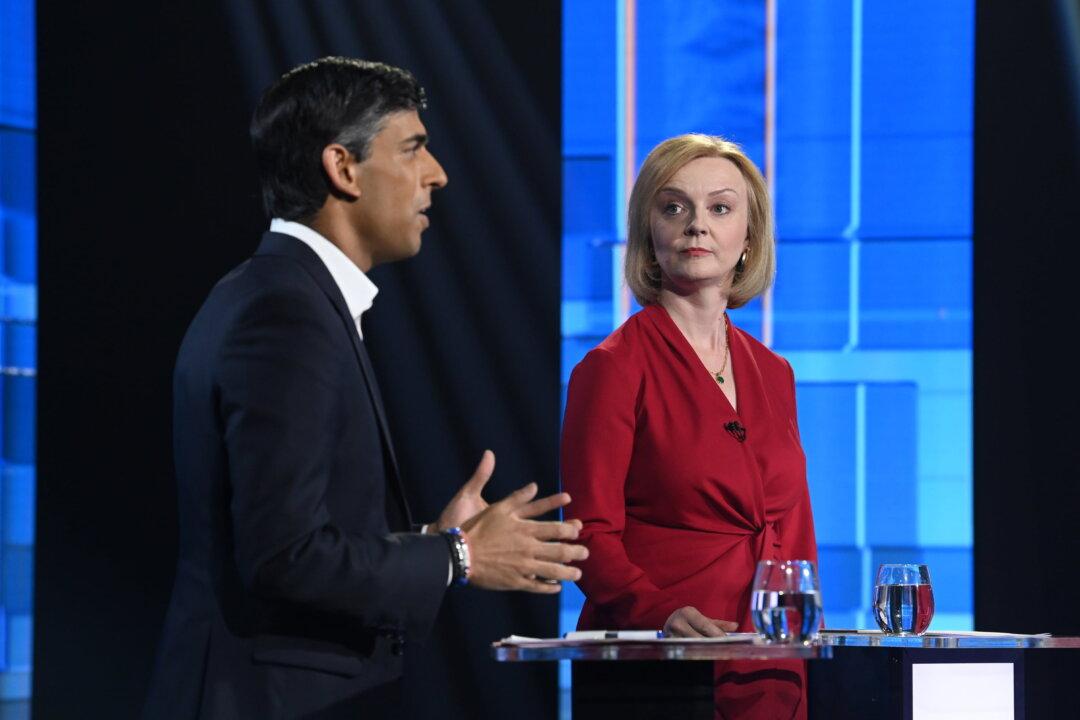Both Conservative leadership candidates have vowed to limit trade unions’ ability to stage industrial actions amid waves of strikes across rail, postal, and other industries over pay.
It comes as members of two trade unions at 14 train operators are about to strike on Wednesday, with further service-crippling rail strikes announced for August.





